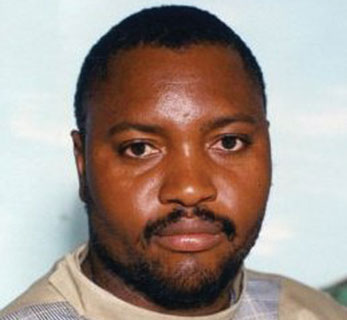
IN one of his golden oldies Oliver Mtukudzi sang a prayerful song with the lyrics, . . . tese tiri makuva Mambo (. . . Lord, we are all graves). The lyrics are not in any way prophetic, but are a recital of the natural tango between life and death and they merely confirm what we all know; our servitude to death.
All humans are mortal and there is none endowed with immortality, yet Zimbabwe’s non-culinary chéfs portray themselves as super humans who do not succumb to illnesses of any sort. As if to dispel that myth, Zimbabweans were recently confronted by three high profile health scares. In scenes similar to the rehearsals for an episode of the medical drama ER, Robert Mugabe,Morgan Tsvangirai and Augustine Chihuri experienced moments of ill-health.
The president of Zimbabwe and Commander -in-Chief of the armed forces flew halfway around the globe for “cataract”-related issues.
The latest Singapore trip triggered the rumour mill into motion. Media organisations danced to their masters’ voices and spiced up the reports on the trip using either the sweet or the savoury approach. Wicked speculation and personal opinions overshadowed facts about the president’s health tourism.
Media houses known to be more commiserative towards Mugabe justified the costly trip as an honour to the institution, the person, the stature, the age and affability of the president. Other media houses criticised the trip as proof of the president’s insensitivity and selfishness. They played a euphemistic reference to Zimbabwe’s “excellent” health services that Mugabe could rely on if indeed he had a cataract problem and nothing else more sinister.
Foreign paparazzi added some journalistic drama and intrigue to the health saga by video recording the presidential entourage as it made a grand entry to the specialist clinic in Singapore.
Grace Mugabe made frantic attempts to wade off the cameraman while Mugabe maintained a dignified silence and remained oblivious to the ensuing furore like a man blinded by Singaporean hospitality. As expected, the video clip made its way to a British broadcaster and in the process revived the debate on the president’s infallibility.
Ordinary citizens’ opinion found its way into the social networks too. Without restraint, the people debated, counteracted and digested the president’s fitness to remain in office in the face of his health problems. “Yeah, Guramatunhu this and that and why waste our limited resources bla bla bla.” Some forward planning or adventurous and notorious elements who troll the whole wide web had the audacity to post the president’s obituary.
- Chamisa under fire over US$120K donation
- Mavhunga puts DeMbare into Chibuku quarterfinals
- Pension funds bet on Cabora Bassa oilfields
- Councils defy govt fire tender directive
Keep Reading
Unfortunately the health benefits that accrue to Mugabe as State president seem to elude the rest of his ordinary subjects. The health facilities are crumbling, the services are expensive and in the mainstream substandard. Life expectancy is low with hosts of communicable diseases on the prowl to afflict hosts. This does not mean that there are no others in the upper echelons of the survival ladder who can afford the good yet pricy private hospitals on offer in The Avenues.
Tsvangirai, the leader of the MDC visited the Trauma Centre in Harare when the fiends of ill health were upon him. He fell sick at a time when he was trying to consolidate his hold on the fractious MDC. His illness was subject to either sympathetic hearing or malicious speculation in the mainstream media and social networks. As in Mugabe’s case, he received sympathy from certain sections of the media and got the death-wish from others.
The case of Tsvangirai’s physical exhaustion soon came out as a serious case of mental health. Some enterprising bloggers viciously suggested that he needed treatment at a psychiatric hospital. This stint of illness was not helped by the mischievous allegations that he was whisked out of the private clinic by his body guards to avoid paying the hospital fees. Again, some people prepared and wrote insulting epitaphs on Tsvangirai’s tombstone.
Before Tsvangirai’s health problems were over, Chihuri, the Commission-General of the police collapsed at the crowning moment of 651 police recruits. Chihuri was reportedly “resuscitated” by one of Mugabe’s medically trained ministers. Within an hour of collapsing, Chihuri was back for the proceedings.
He profusely apologised to Mugabe for the glitch. Chihuri blamed wrong shoes, particularly the right one, for the incident. He also alluded to the long hours he puts to his work as part of the causation. Critics viewed Chihuri’s apology to Mugabe as his way of projecting the supposed infallibility of the top brass.
In his strongly held belief of insusceptibility to illness, Chihuri felt he owed Mugabe an apology for doing what immortals don’t do.
Chihuri’s collapsing shows that the top is made of people who meet up with normal problems of life. Mugabe should have praised Chihuri for his resilience and for defying the sudden death syndrome.
The president should have exercised sympathy by immediately sending Chihuri for medical check-up in case some artery is clogged by the fatty deposits from the rich foods served at the countless uhuru banquets.
The illnesses of the three chéfs serve as a reminder that rich or poor, there is no one who is infallible or insusceptible to ill health.
Yes, money can buy the best medical attention, yet it cannot buy life. Humans are indeed candidates for the graves.
Masola waDabudabu is a social commentator










